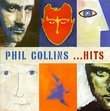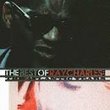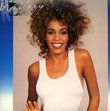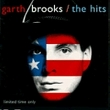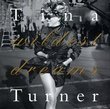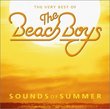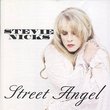| All Artists: Michel Legrand Title: Lady Sings The Blues (1972 Film) Members Wishing: 0 Total Copies: 0 Label: Motown Original Release Date: 10/12/1972 Re-Release Date: 4/13/1992 Album Type: Soundtrack Genres: Pop, R&B, Soundtracks Styles: Oldies, Classic R&B, Motown, Soul Number of Discs: 1 SwapaCD Credits: 1 UPCs: 737463075824, 037463075849, 050109075812, 731453013520, 737463075848 |
Search - Michel Legrand :: Lady Sings The Blues (1972 Film)
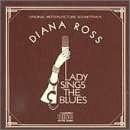 | Michel Legrand Lady Sings The Blues (1972 Film) Genres: Pop, R&B, Soundtracks
Face it, when searching for female singers to portray the hard-knock life of troubled jazz legend Billie Holiday, Diana Ross's name shouldn't even have come to mind. But portray her she did, earning herself an Oscar nod... more » |
Larger Image |
CD DetailsSynopsis
Amazon.com Face it, when searching for female singers to portray the hard-knock life of troubled jazz legend Billie Holiday, Diana Ross's name shouldn't even have come to mind. But portray her she did, earning herself an Oscar nod in the process. The mother of all divas did Lady Day's legacy proud. This soundtrack (which includes dialogue from the 1972 film) ain't Holiday, but it ain't bad; Ross is in fine and flavorful voice. She manages to both capture Holiday's idiosyncratic sound (which such pretenders to the throne as Erykah Badu have trampled on) and still sound enough like herself to satisfy her own legions of fans. She conjures up Holiday's vulnerability and phrasing without attempting to slavishly imitate. As an homage this works. --Amy Linden Similarly Requested CDs
|
CD ReviewsThe Essence of Lady Day is Captured by Ms Ross M. Edwards | Buckinghamshire United Kingdom | 04/26/2005 (5 out of 5 stars) "Diana Ross certainly ruffled a few feathers among the "purists" when it was announced that she was to portray one of the greatest jazz singers of all time. One of their main gripes was that the young 28 year old Ms Ross simply had lived enough to even dare stepping on Lady Day's territory. The movie itself came under criticism for its lack of authenticity in certain areas, and for the glossing over of Holiday's turbulent life and career. Where the movie and the music shine forth so powerfully is that it captures the essence of Holiday. Diana showcases Holiday's triumphs, vulnerability and confusion in such a poignant way that it cannot fail to move even the hardest critic. Diana didn't try to imitate Ms Holiday - no one could have, really. Instead, she created new interpretations of Holiday's classics. There's a rich feel to the soundtrack, and this is reinforced by dialogue from the film. Many of the musicians who played with Billie were drafted in to perform for the film and this is explains why the calibre of the music was so high. The orchestra was conducted by the legendary Gil Askey, who has worked with Diana since her time with the Supremes. There are several outstanding tracks here, namely: "Don't Explain" - a touch of melancholy "Fine and Mellow" "Lover Man" "You've Changed" - captures Billie's heartache - very moving "Good Morning Heartache" - stunning vocal performance "My Man (Mon Homme)" - incredible torch song! "Love Theme" - a beautiful instrumental written by French composer Michael Le Grand "God Bless the Child" - a commanding performance "Strange Fruit" is a haunting song that reveals the horror of lynching in the Deep South. Diana's crystal clear diction and intonation are incredible - to the point of being eerie. The soundtrack raced to the #1 spot on the Billboard album charts, and became the fastest selling Motown album at the time. Quite why Diana, Gil Askey and Michel Le Grand weren't awarded Grammies for their sterling efforts is one of life's minor mysteries. As for Diana missing out on the Oscar, I have my own theory about why: Hollywood just weren't quite ready to give up its most glittered prize - in the leading Best Actress category - to a woman of colour. Interestingly, Cicely Tyson (another fine actress) was also nominated for a Best Actress Oscar at the same time as Diana. We'd have to wait some 30 years (how crazy was that?) for Halle Berry to scoop the award and make history. I reckon that denying Diana the Oscar was a way of keeping her and Motown firmly in their place. Nevertheless, the film and the soundtrack have stood the test of time, and represent some of best of Diana's work. It's a beautiful, moving performance that showcased Diana's gift for jazz interpretation. This soundtrack comes highly recommended. " THE DYNAMIC DIANA ROSS ianphillips@uk.dreamcast.com | BOLTON, LANCASHIRE, ENGLAND | 04/14/2001 (5 out of 5 stars) "As soon as it was announced that Diana Ross was to portray the late 1940's/50's jazz and blues singer, Billie Holiday, sneering critics doubted almost immediatley that she could really carry this challenging task off. It is true to say that there certainly were many differences between Billie Holiday and Diana Ross vocally. Firstly Billie Holiday had a deep, husky, hoarse sounding voice which suited the material she worked with perfectly whilst Diana Ross had a smooth but soulful voice that could at times sound very sugary sweet on the slower material she worked with whilst high pitched on an up tempo number. This defintley was Dianas most challenging tak to carry off to this point in her career. It was only a few years into her solo career by then but this film helped propell her into the world class mega stardom that she now enjoys to this day. She was most certainly an accomplished soul/r&b/pop vocalist but had never really ventured into the field of jazz and blues before.However by the end of her work on Lady Sings The Blues, critics really began to sit up and recognise her as the renowned vocalist she still is today. the soundtrack was recorded under the strict supervision of Gil Askey. She totally avoided doing any Supreme type numbers and sang these songs in a refreshingly unique style that manages to capture the mood and spirit of the origanal recordings perfectly. The real beauty and soul comes out on these numbers as she sings them with such passion and feeling. She does an absolutley fantastic job on Strange Fruit - a very deep, meaningful song which is all about the horrors of racial abuse that occured back then and how Billie first saw a black man being hung which explains the descriptive notion of "strange fruit". Equally just as magnificent is her incredibly touching and heart felt performance on My Man which is perharps (certainly in my own personal opinion that is) the very best recording out of the entire soundtrack. Her gorgeous reneditions of classics such as Lover Man (oh where can you be), Good Morning Heartache, All Of Me, Love Is Here To Say, What A Little Moonlight Can Do, Fine And Mellow, Gimme A Pigfoot And A Bottle Of Beer and T'ain't Nobodys Buisness If I Do are pure magic to listen. Many of the films dialogue appears throughout the soundtrack to capture the mood of the movie effectivley. Lady Sings The Blues remains one of Diana Ross' most accomplished pieces of work and was a major triumph in her career showcasing her unlimited talents. Highly Recommended - both soundtrack and the movie itself!" Ms. Ross's Is So So Fine -- Her Best Recording ! Peter | East of Los Angeles | 10/06/2004 (5 out of 5 stars) "I just heard this CD again this week after a long time. I must say this CD still stands the test of time, even after 30 years. Diana Ross is to be commended for her superb interpretations of these Billie Holiday standards -- all classics. It must have seem daunting for Diana Ross to tackle the role of Billie Holiday in "Lady Sings the Blues". True, the movie took many knocks for sensationalizing the seedier aspects of Billie's drug use and promiscuity, but no one can knock Diana's performance in that movie. I still don't understand how Diana Ross lost the Best Actress Oscar to Liza Minnelli for "Cabaret" that year. Perhaps Hollywood was not yet ready to bestow an Oscar for Leading Actress to a black woman. That's the only reason. It took Halle Berry to finally win one almost 30 years later for "Monster's Ball", which paled in comparison to Ms. Ross's performance in "Lady Sings the Blues", but that's another story.
My only quibble with this soundtrack is that Berry Gordy decided to instill snippets from the movie's dialogue into the soundtrack, which seems jarring when listening to the entire CD. But this is a soundtrack CD after all, so I guess Berry Gordy and Motown wanted it to be as authentic as it could. All the songs are standouts, but Ms. Ross really shines in "Good Morning Heartache" (Motown released this as a single back in 1972) and probably her finest track "God Bless the Child". This is no mean feat since those songs are forever identified with Lady Day, but Diana manages to instill her own character into the song without robbing its essence. Certainly very, very praiseworthy. Ms. Ross also was in great voice during this period as a recording artist. Having gone solo a few years earlier from the Supremes, her voice is warm and supple with just the right amount of lilt, which makes interpreting these Lady Day classics a bonus to hear. Again, much praise indeed to "Lady Diana" for a great singing and acting job. Does anybody wanna know that Diana Ross has YET to win a Grammy? That's no joke! No Grammy and No Oscar. Is someone trying to send a message to Diana Ross ???" |

 Track Listings (33) - Disc #1
Track Listings (33) - Disc #1
